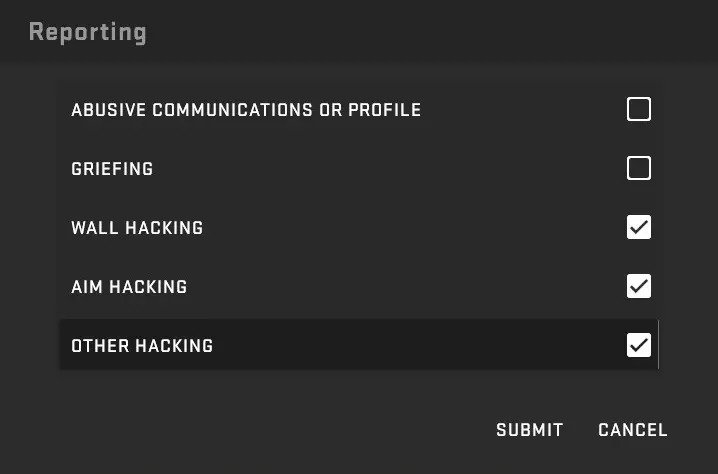BD124 Insights
Your go-to source for the latest news and informative articles.
Toxicity Chronicles: Unraveling the Drama Behind CS2 Reports
Explore the gripping world of CS2 reports in Toxicity Chronicles. Uncover the drama and shocking truths behind toxicity in gaming!
Understanding Toxicity in CS2: What Do Player Reports Really Mean?
Understanding toxicity in CS2 (Counter-Strike 2) is crucial for fostering a positive gaming environment. Player reports play a significant role in identifying and addressing toxic behavior within the community. These reports are often based on personal experiences and can reflect a wide range of behaviors, from rude comments in chat to disruptive gameplay. It is important for players to recognize that not all reports indicate severe misconduct; sometimes, misunderstandings can lead to misreported players. Hence, analyzing the context of these reports is essential to grasp the bigger picture of toxicity in CS2.
Moreover, the implications of player reports go beyond simple punishment; they are part of a larger system aimed at enhancing the overall gaming experience. Players should be made aware that frequent reporting can lead to a player being monitored more closely for their behavior, which can eventually lead to consequences if problematic patterns are detected. Balancing the need to report genuinely toxic players while avoiding the escalation of unnecessary reporting is crucial. Thus, educating the community on the significance of toxicity and the responsible use of reporting tools can significantly contribute to a healthier gaming atmosphere in CS2.

Counter-Strike is a popular first-person shooter game that pits two teams against each other, typically terrorists and counter-terrorists, in various objective-based game modes. Players can compete to complete missions, such as planting or defusing bombs, rescuing hostages, or simply eliminating the opposing team. For players interested in enhancing their gaming experience, understanding how to get cases in cs2 can provide valuable insights into acquiring new skins and weapons.
The Impact of Player Behavior on CS2 Gameplay: An In-Depth Analysis
The impact of player behavior on CS2 gameplay is profound and multifaceted. Understanding how individual actions affect team dynamics can illuminate paths for improvement both on and off the battlefield. Positive behaviors such as effective communication and teamwork lead to a more cohesive playstyle, which can significantly elevate a team's performance. Conversely, negative behaviors—such as toxic communication or refusal to cooperate—can hinder gameplay and create a frustrating environment not only for the offenders but also for teammates. Analyzing these behaviors provides insights into the broader community and highlights the importance of fostering a respectful and collaborative gaming culture.
Further, various studies and community feedback suggest that player behavior can also influence matchmaking algorithms, leading to an uneven experience for players. When the player behavior indicators—such as reports and wins/losses—are skewed by toxicity or uncooperative teammates, it can disrupt the fairness of competitive play. This can potentially drive players away from the game, impacting the overall health of the CS2 community. By addressing these behavioral issues through community engagement and support systems, game developers can not only improve individual player experience but also ensure the longevity and success of CS2 in the competitive gaming landscape.
Why Are So Many CS2 Players Reporting Toxicity? Exploring the Trends
The emergence of toxicity within the gaming community, particularly among CS2 players, has become a topic of increasing concern and discussion. With the competitive nature of first-person shooters, players are often under immense pressure to perform well, which can lead to hostile interactions both in-game and through various communication channels. A recent analysis highlights that more than 50% of players have encountered toxic behavior, ranging from verbal harassment to unsportsmanlike conduct. This trend not only affects individual player experiences but also has broader implications for team dynamics and overall game enjoyment.
Several factors contribute to the rise in toxic behavior among CS2 players. Firstly, the anonymity provided by online gaming allows individuals to act without facing real-world consequences, fostering an environment where negativity flourishes. Additionally, the competitive ranking system can exacerbate stress, pushing players to prioritize winning at all costs. Numerous players have taken to forums and discussions to express their frustrations, indicating that the community must work towards fostering a more positive atmosphere. Addressing the root causes of toxicity is essential for enhancing gaming experiences and retaining players within the CS2 ecosystem.